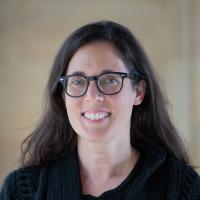I am Associate Professor of the Sociology of New Media and Digital Technology as well as the Anthony L. Lyster Fellow in Sociology at Queens’ College and Co-Director of the Centre of Governance and Human Rights (CGHR). At CGHR, I lead the research theme on human rights in the digital age. I am also Deputy Head of Cambridge's School of the Humanities and Social Sciences.
My research is concerned with symbolic struggles surrounding the media in times of transition, whether democratic or digital, and most recently focusing on the empirical case of human rights fact-finding in the digital age. The latter is a case study for understanding how truth-claims are created, evaluated and contested, as well as what effects related norms and practices have on equal access to speaking and being heard in public. I am developing two new projects. The first is on 'Neo-Luddism in the Digital Age: Resisters, Quitters, Destroyers and Visionaries against Contemporary Technologies' (https://www.crassh.cam.ac.uk/about/people/ella-mcpherson1/), with the support of a Cambridge Early Career Fellowship at CRASSH. The second is with Dr Sharath Srinivasan and Dr Sebastián Lehuedé and is on 'Provocations for Human Rights Practitioners: Technology, Power and Voice'. It is supported by a Technology and Human Rights Fellowship at Harvard's Carr Center.’ My research has been funded by the ESRC, an EU Research and Innovation Horizon 2020 grant, and the Gates Cambridge Trust.
I am also involved with policy work, such as in my 2020-21 role as Special Adviser to the House of Lords’ Digital and Communications Committee for their Freedom of Expression Online Inquiry. I have also contributed research on ICTs and human rights practice as well as on the freedom of expression online for the United Nations’ Office of the High Commissioner for Human Rights.
Previously, I was a Junior Research Fellow in Sociology at Wolfson College and an LSE Fellow at the London School of Economics and Political Science's Department of Media and Communications. I earned my PhD in Sociology and my MPhil in Latin American Studies at Cambridge, and my BA was from the School of Public and International Affairs at Princeton University.

